Rose bushes stand guard over the rows of vines at Casa Sicilia, which was visited by the Moraira-Teulada U3A wine tasting group on 1st February 2024.
Up before dawn, on the coach by 8.30 a.m., 53 group members made the 90 minute journey down the motorway to Alicante and on to the Bodega, tucked away down a narrow lane outside Novelda.
It’s not huge, consisting of nearly 60 acres of vines and close on 30 of olives, but it’s very pretty and surrounds a magnificent 1707 farmhouse, built as part of the estate of the Marquis of Romana and in the hands of the Arias family since 1984.

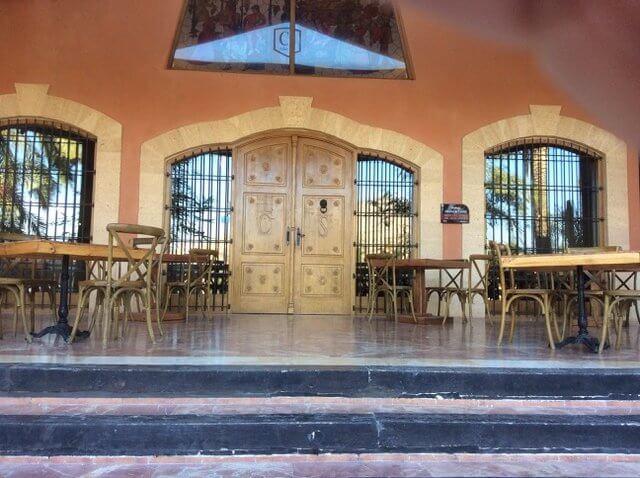

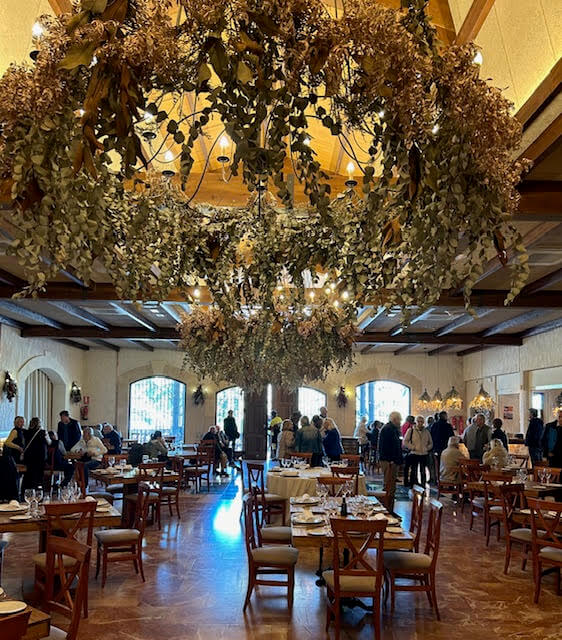



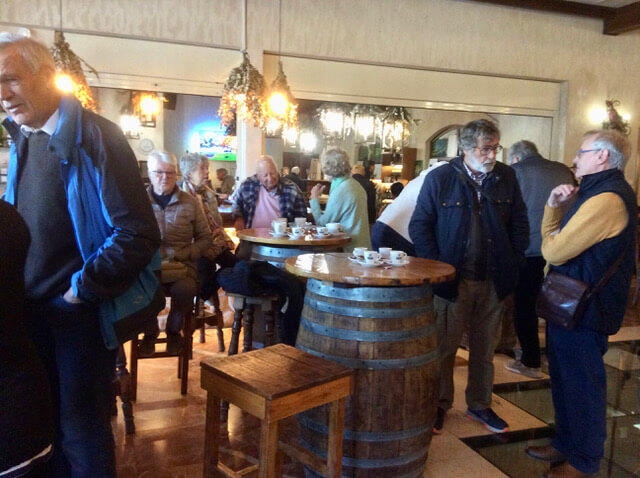
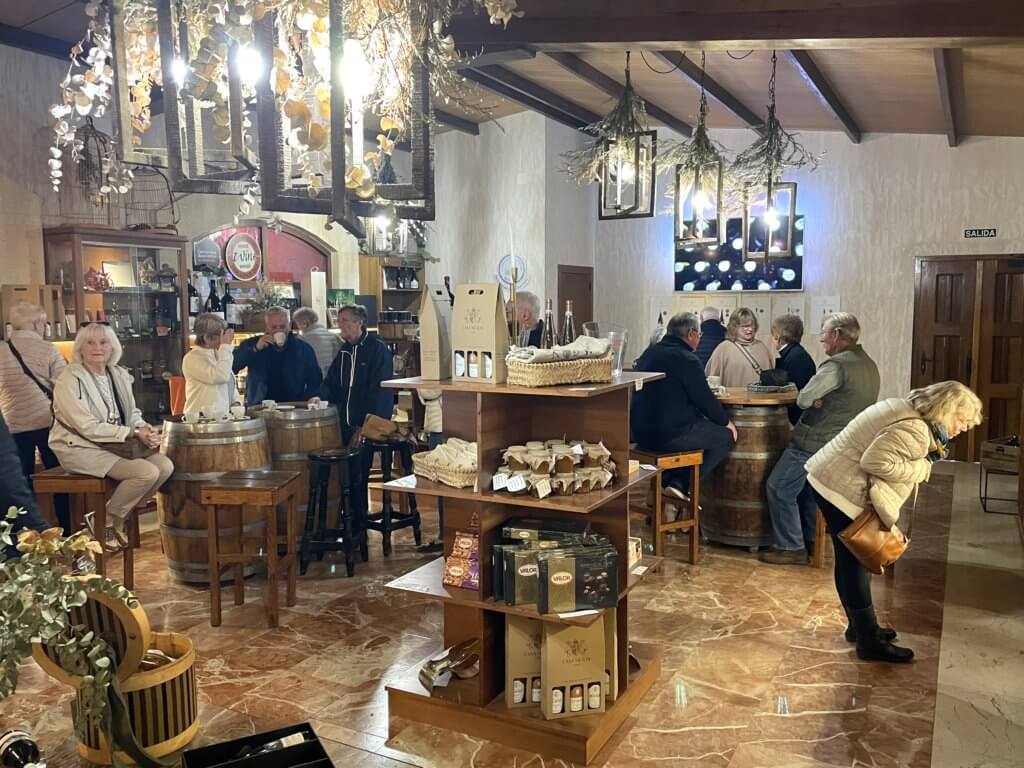
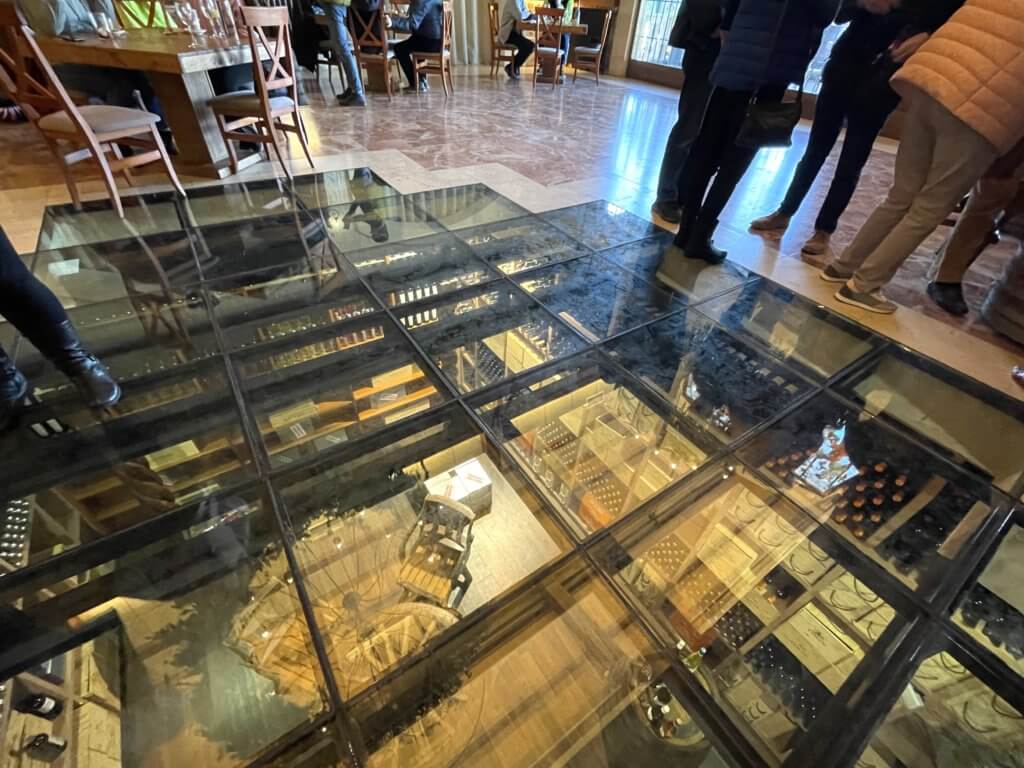
They focus on seven wines and produce some 100,000 bottles a year. Judging by the cases packed into the coach at the end of the trip, it was a white offered during the tasting – Cesilia Blanc – which was the clear favourite. A blend of Moscatel, Macabeo and Malvasia, it is a very yellow, aromatic and fruity wine matured for just six months.
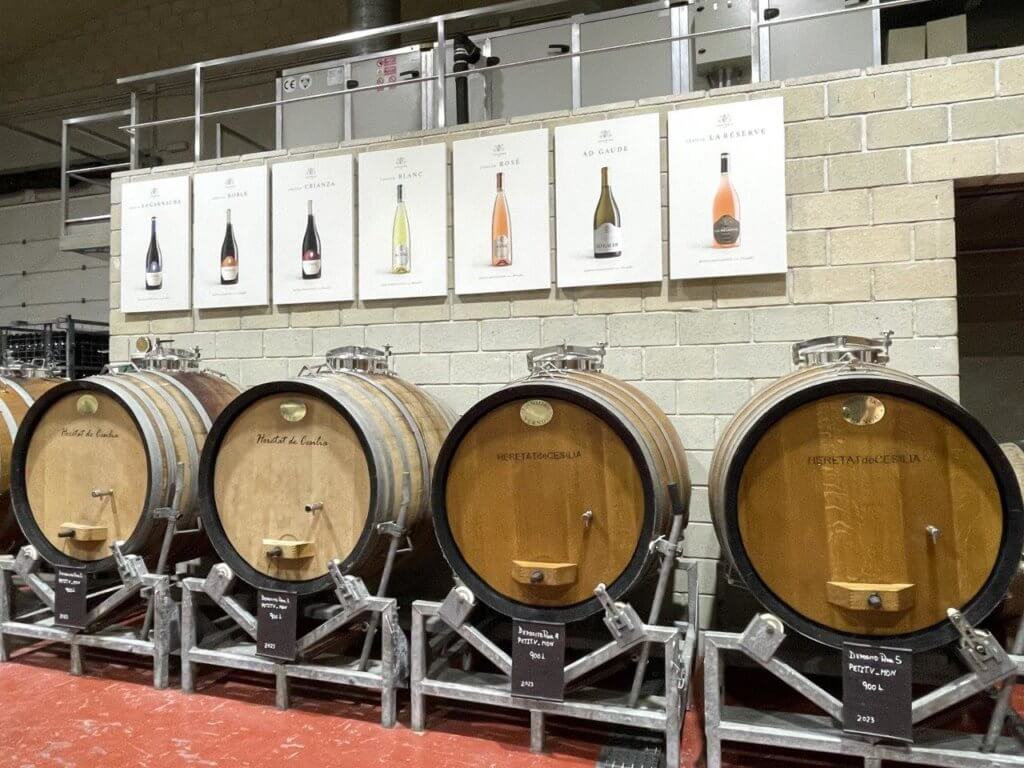
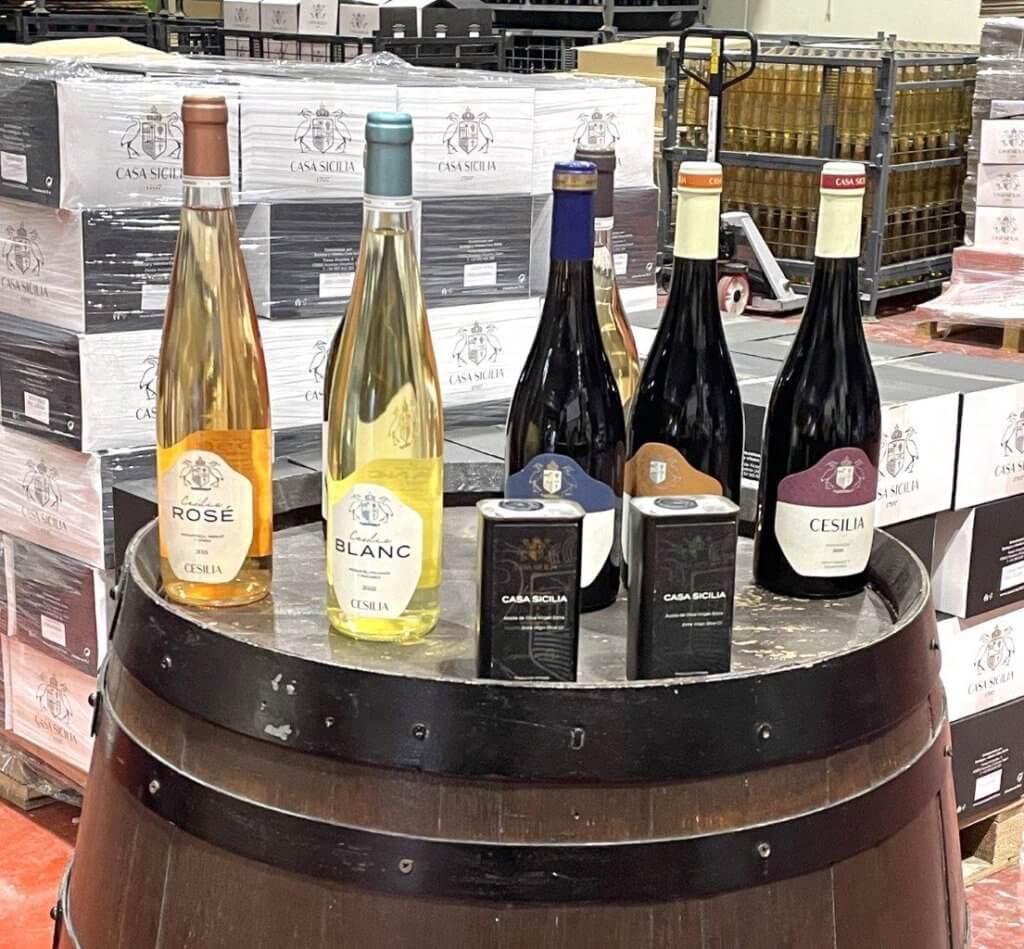

Now back to the roses, our guide informed us that it was an old way of protecting vines, especially eco organic ones, from mosquitos and other bugs. It serves as an early warning of black rot and mildew. You learn something every day!
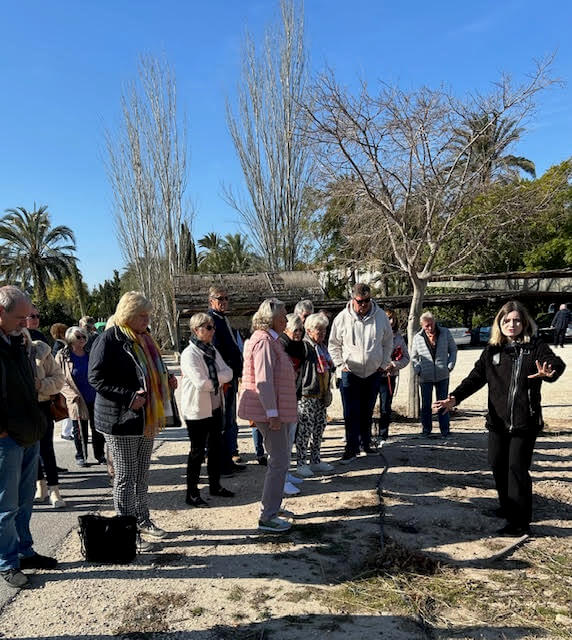
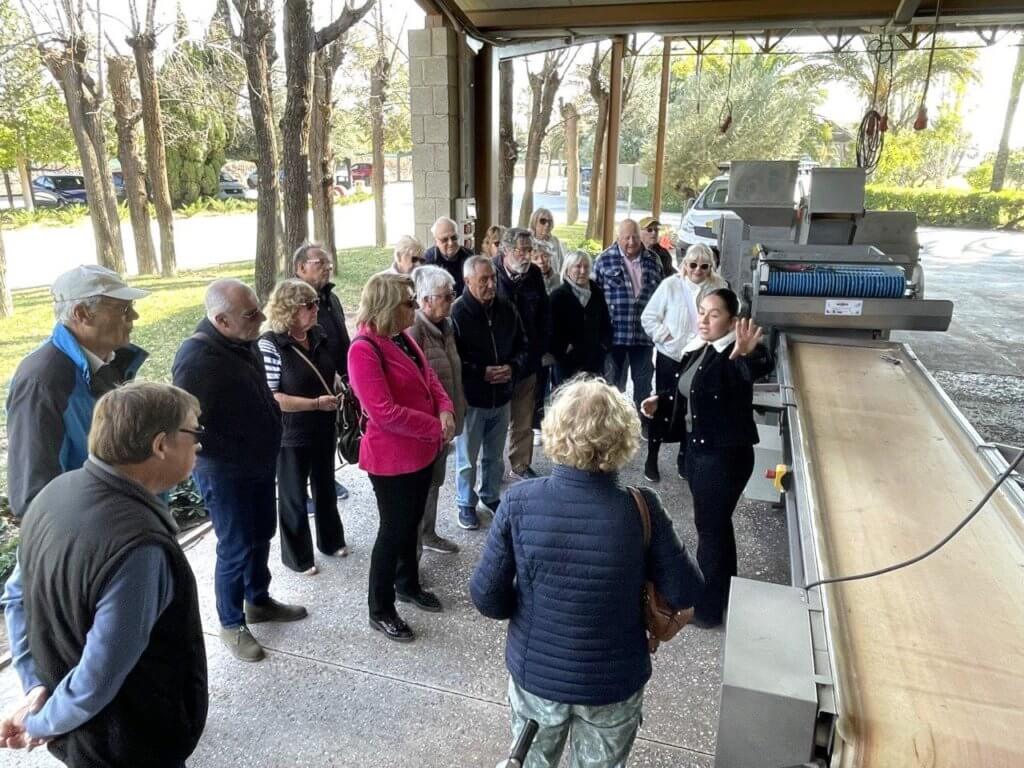
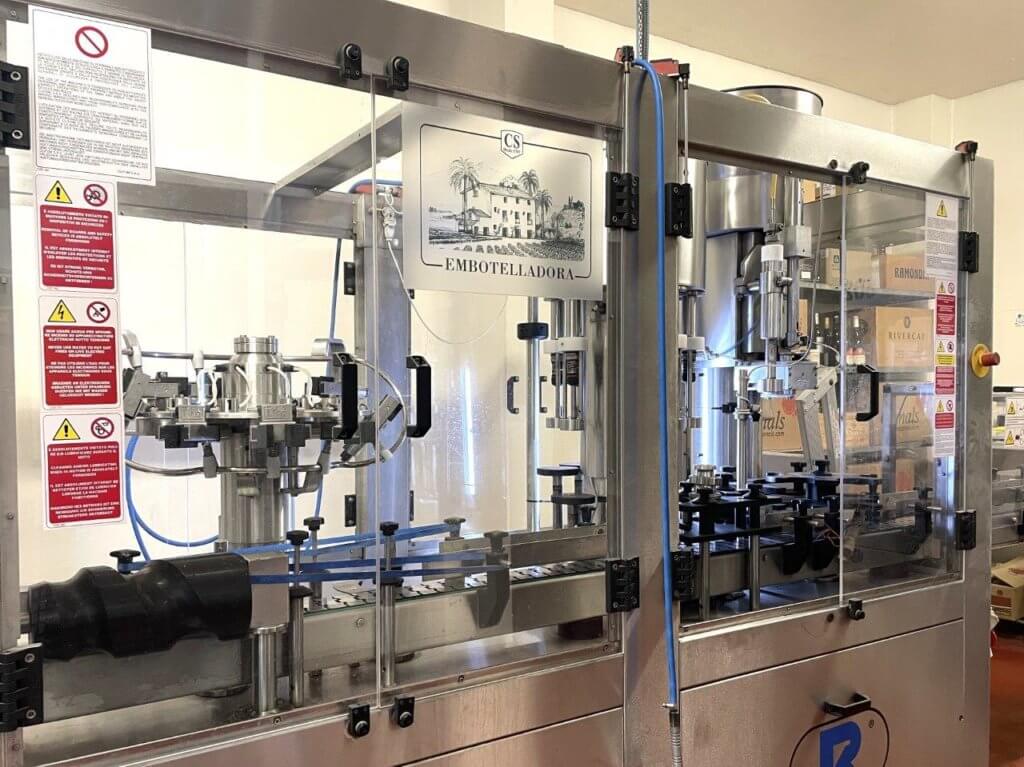

After an informative tour of the Bodega, it was time to do some serious tastings.
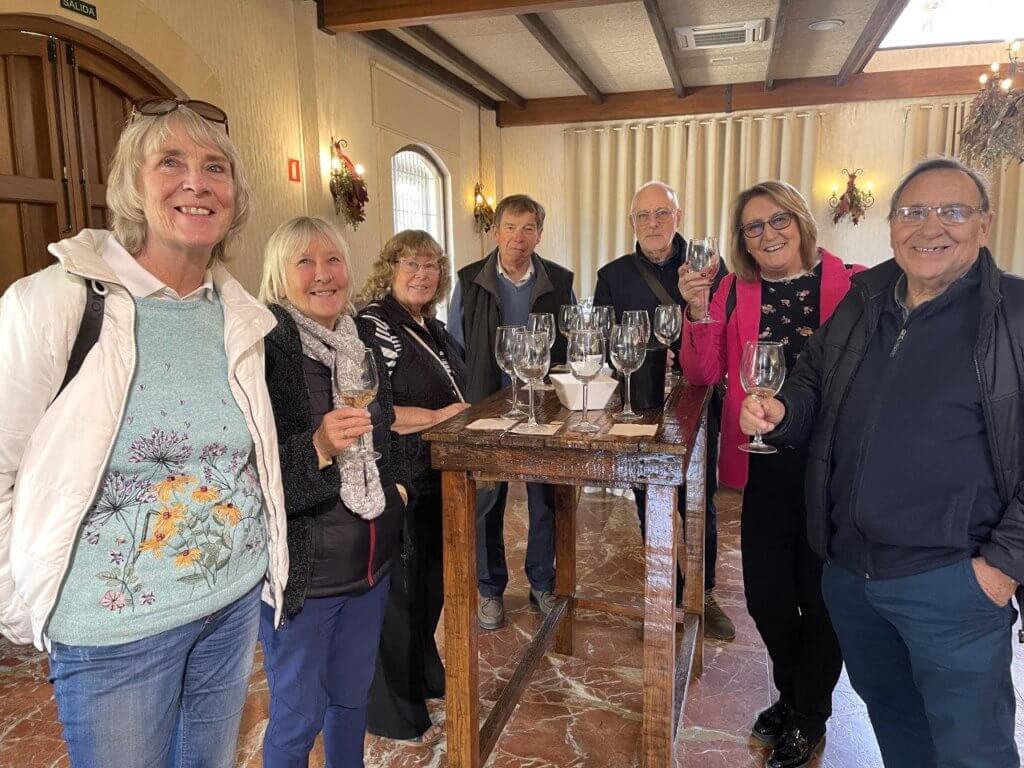

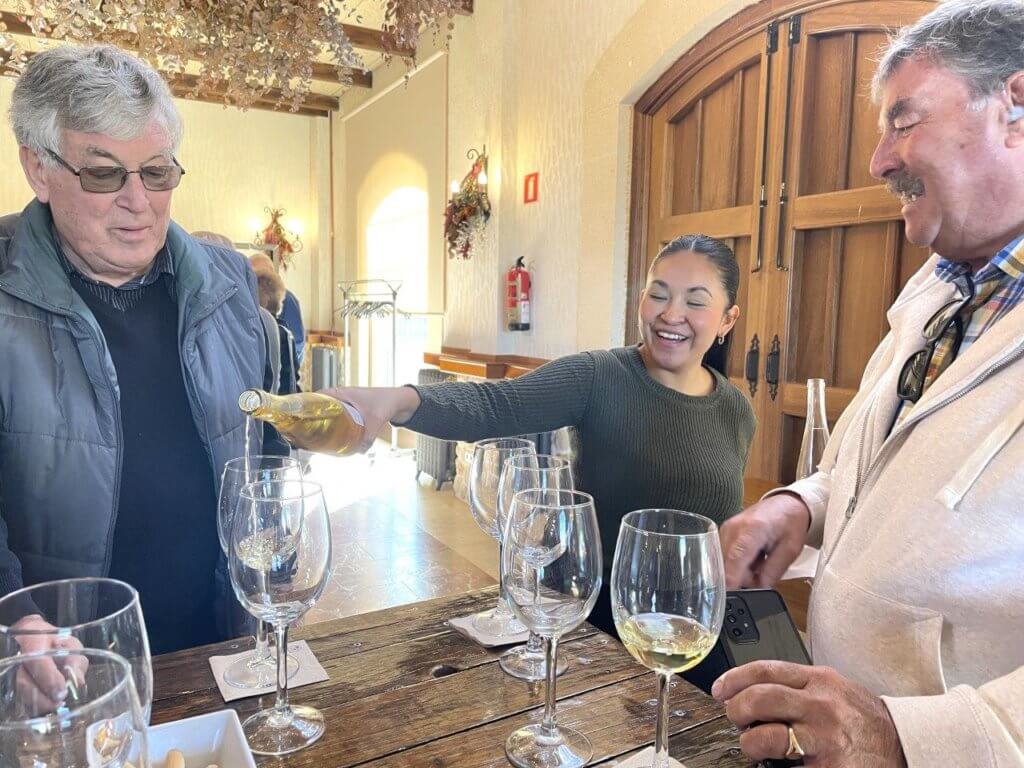
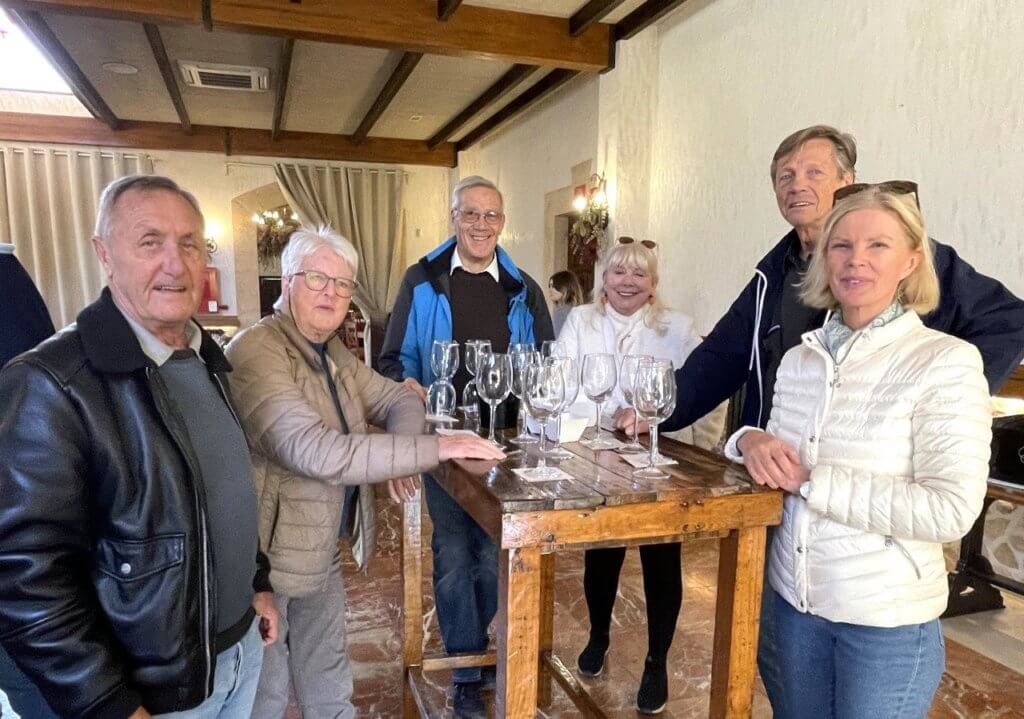
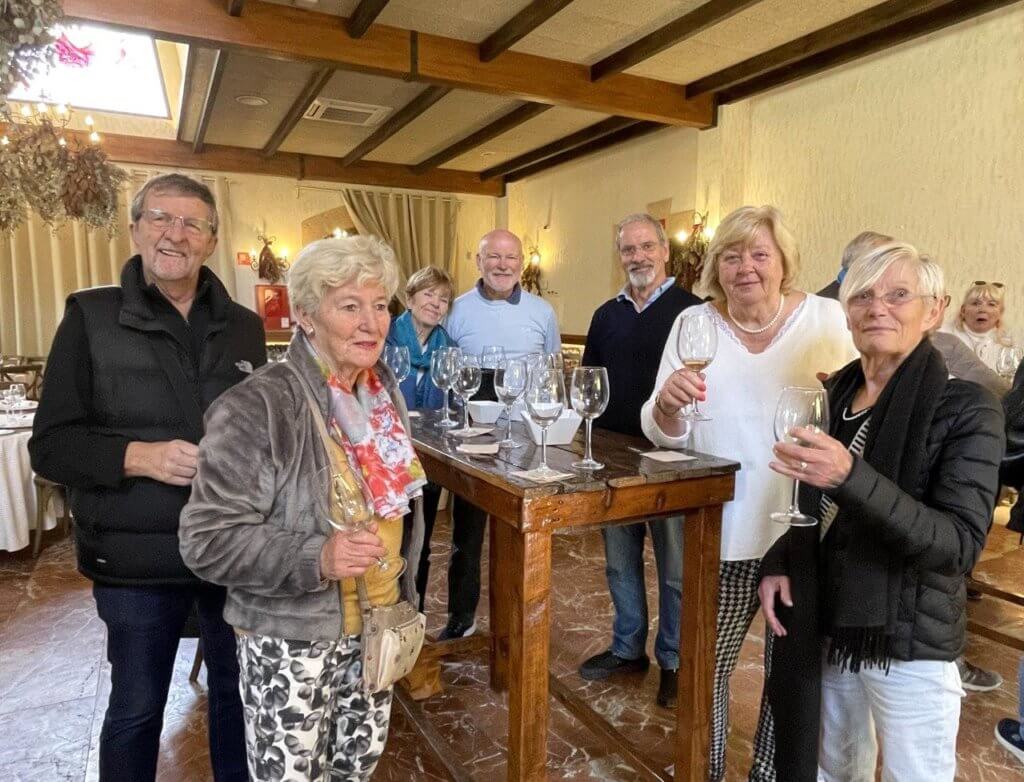

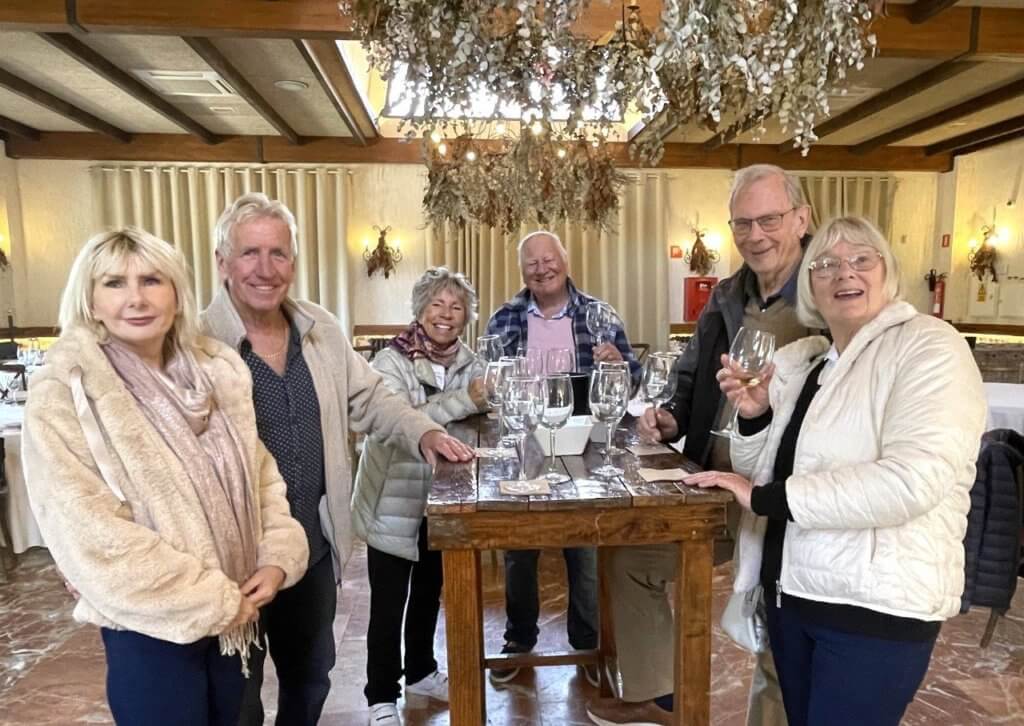
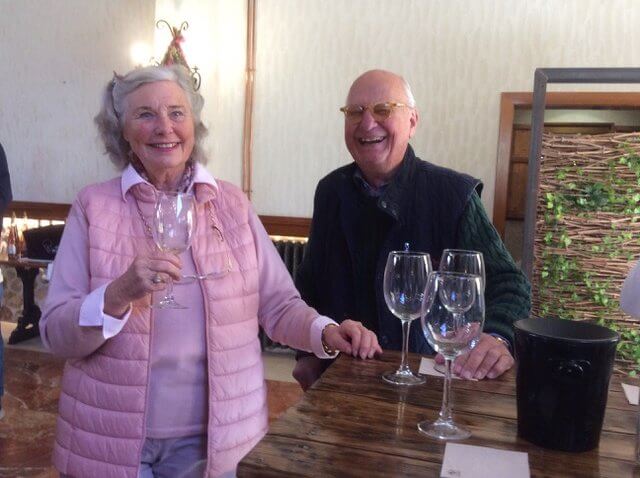
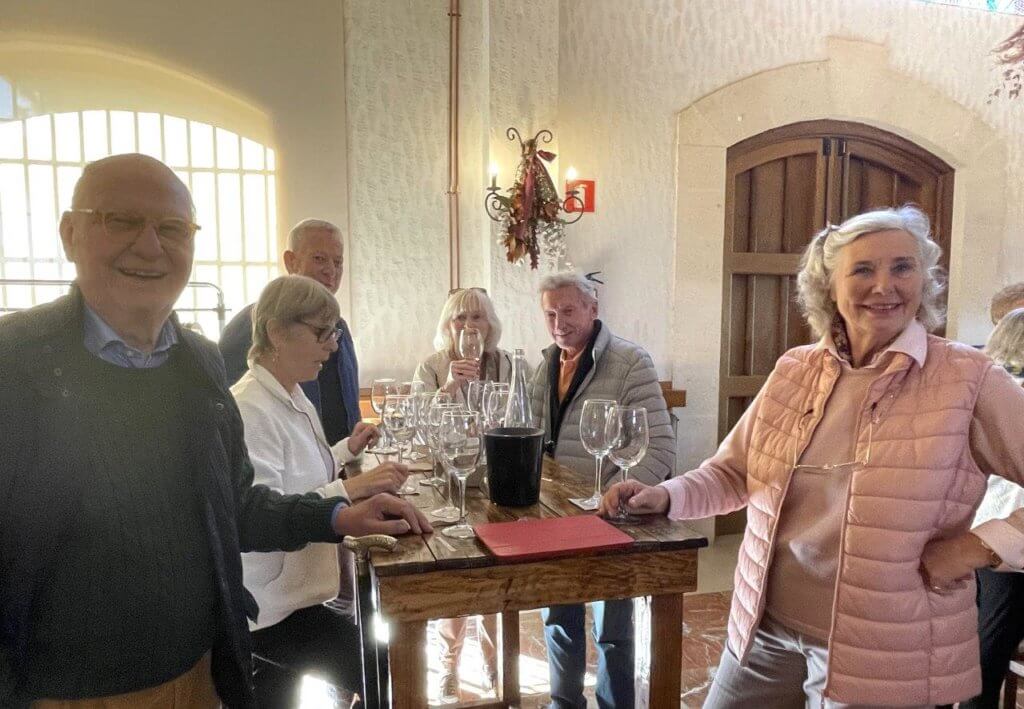


Lunch was in a very impressive function suite attached to the old farmhouse where a glass floor gives a slightly unnerving sight of a well stocked cellar below. Lunch consisted of a selection of starters for sharing, meat and fish rice dishes followed by dessert and coffee.

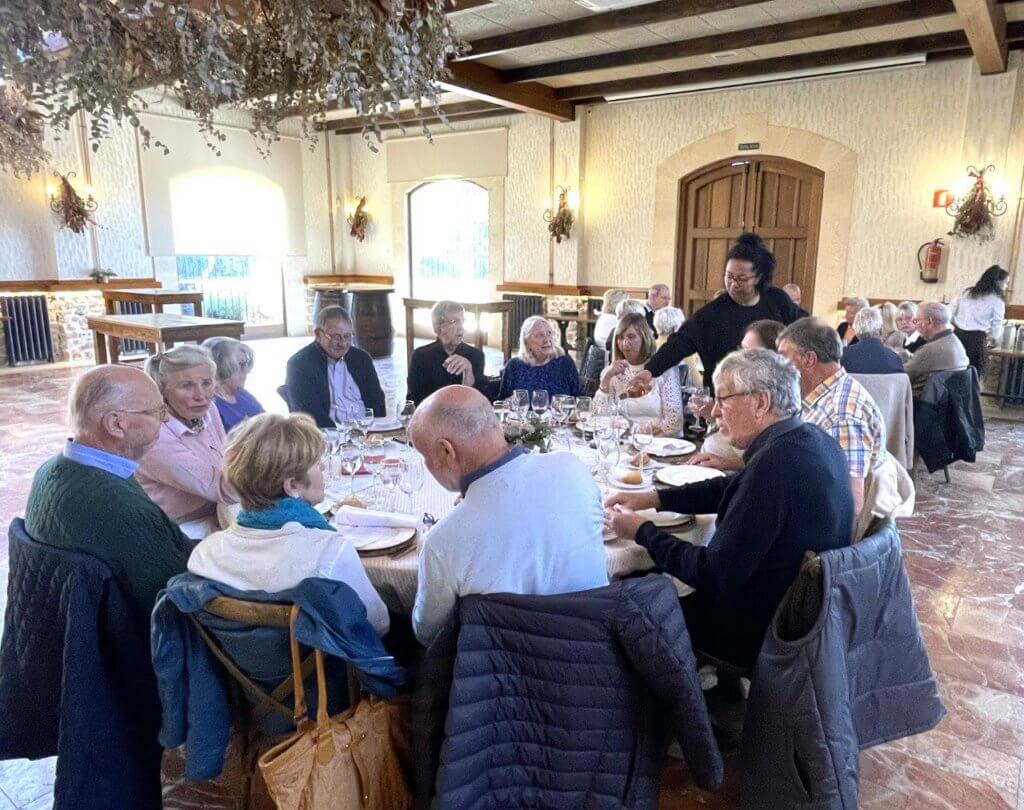

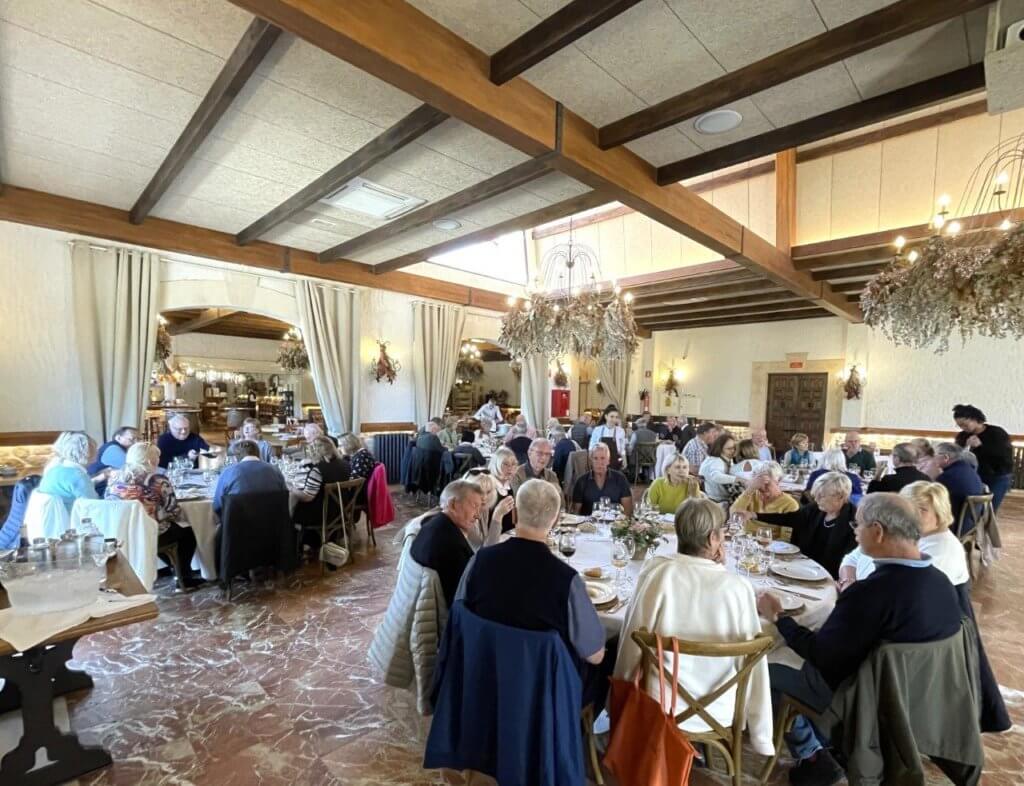
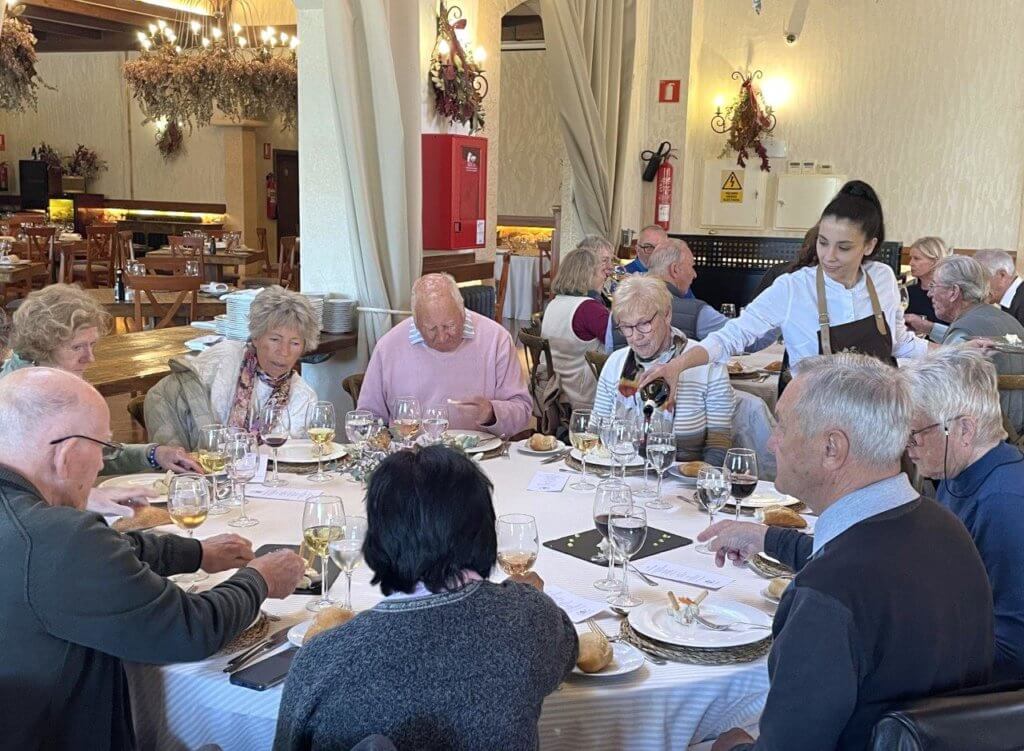
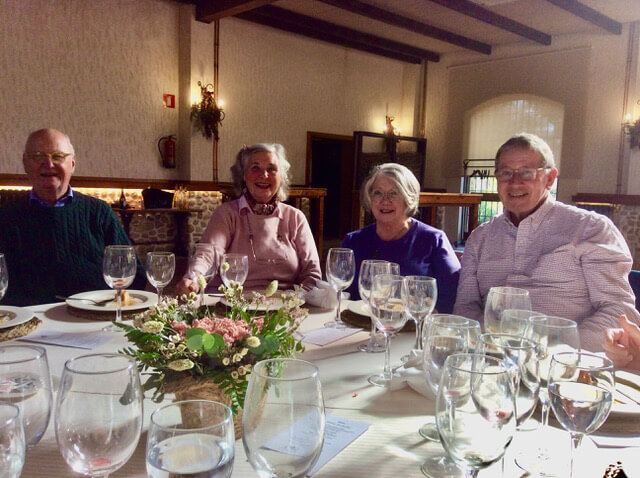
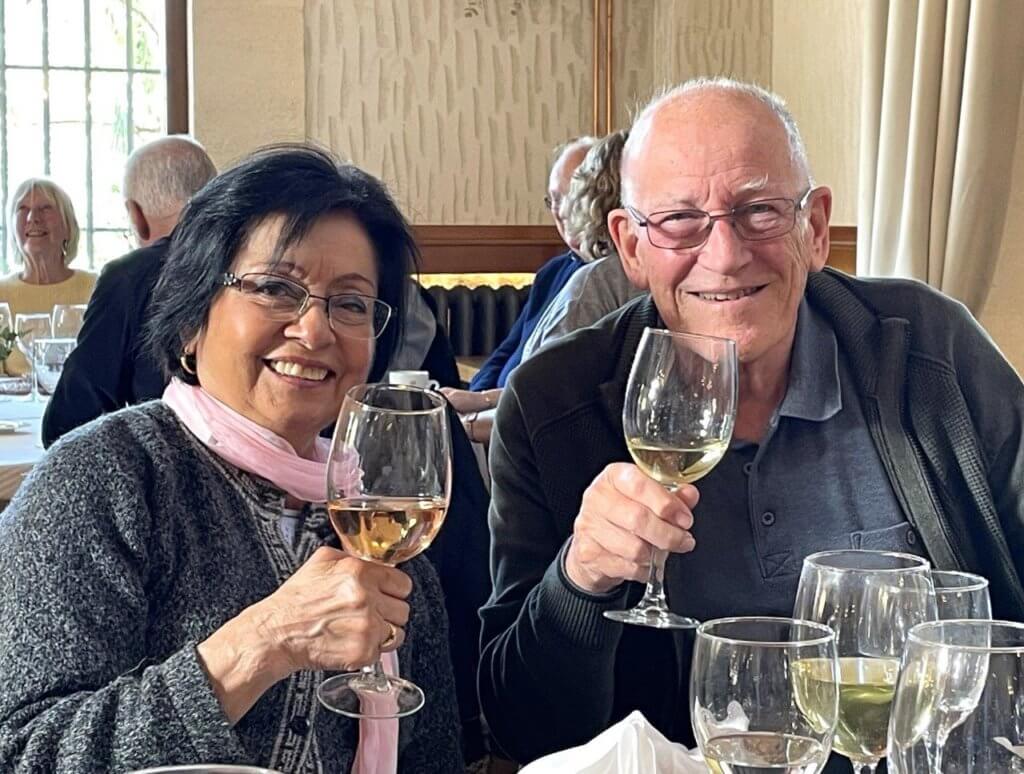

You can get married at the Bodega, or hold other functions there. The tasters made do with a resounding round of Happy Birthday for one of their members before boarding the coach for a doze on the way home.



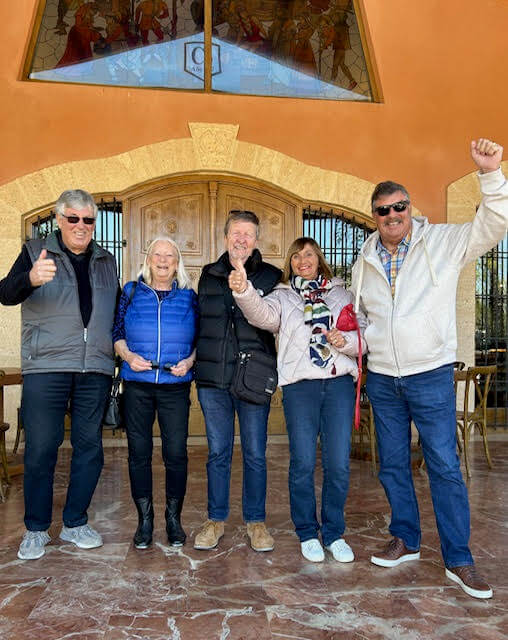
A big thank you to Pat and Brian Clarke for organising a very pleasant day out.
……… and our special thanks go to Ian Graham for writing an excellent review and to John Snell, Alice Waldner & Dina Jones for supplying us with so many lovely photos that it made culling them so very difficult.
